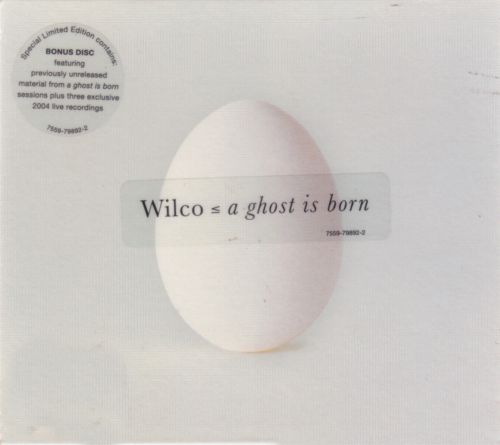

It's hard not to wonder if Wilco's breakthrough 2002 release, Yankee Hotel Foxtrot, would have been such a critical success and so eagerly embraced by the indie rock community if it hadn't become such a cause célèbre thanks to the band being unceremoniously dropped by Reprise Records, and then signed by Nonesuch after the album had become a hot item on the Internet. Much of the critical reaction to the album, while almost uniformly enthusiastic (and rightly so), had an odd undertow that suggested the writers were not especially familiar with Wilco's body of work, registering a frequent sense of surprise that an "alt-country" band would make such an adventurous album while ignoring the creative shape-shifting that had been so much a part of Jeff Tweedy and company's approach on Being There and Summer Teeth. The irony is that 2004's A Ghost Is Born, the eagerly awaited follow-up to Yankee Hotel Foxtrot, is also the Wilco album with the strongest stylistic link to its immediate predecessor, as if their new fans are being given a moment to catch up. A Ghost Is Born hardly sounds like a retread of YHF, but the languid, ghostly song structures, the periodic forays into dissonance, and the pained, hesitant vocals from Jeff Tweedy that were so much a part of that album also take center stage here. But while much of Yankee Hotel Foxtrot had a cool and slightly removed feeling, A Ghost Is Born is considerably warmer and more organic; the extended instrumental breaks in several of the songs (two cuts are over ten minutes long) sound more like a group in full flight than the Pro Tools-assembled structures of YHF. And while Wilco's former secret weapon, Jay Bennett, is now out of the picture, the rest of the group (especially multi-instrumentalist Leroy Bach, keyboardist Mikael Jorgensen, and guitarist/co-producer Jim O'Rourke) fill the gaps with admirable grace and strength. If A Ghost Is Born has a flaw, it's in the songwriting; while this album is a "grower" if there ever was one, revealing more of its unexpected complexities with each spin, there are no songs here as immediately engaging as "War On War," "Heavy Metal Drummer," or "I'm the Man Who Loves You" from YHF, and while "Hummingbirds," "Handshake Drugs," and "Wishful Thinking" are tuneful and charming, they lack the resonance and emotional impact of Tweedy's strongest work. And the album's most purely enjoyable tune, the witty "The Late Greats," closes out the disc after the 15-minute drone dirge of "Less Than You Think," dramatically blunting its effectiveness. A Ghost Is Born confirms what old fans and recent converts already know — that Wilco is one of America's most interesting and imaginative bands — and it's brave and compelling listening. But if you're expecting another genre-defying masterpiece, well, maybe we'll get one of those next time.